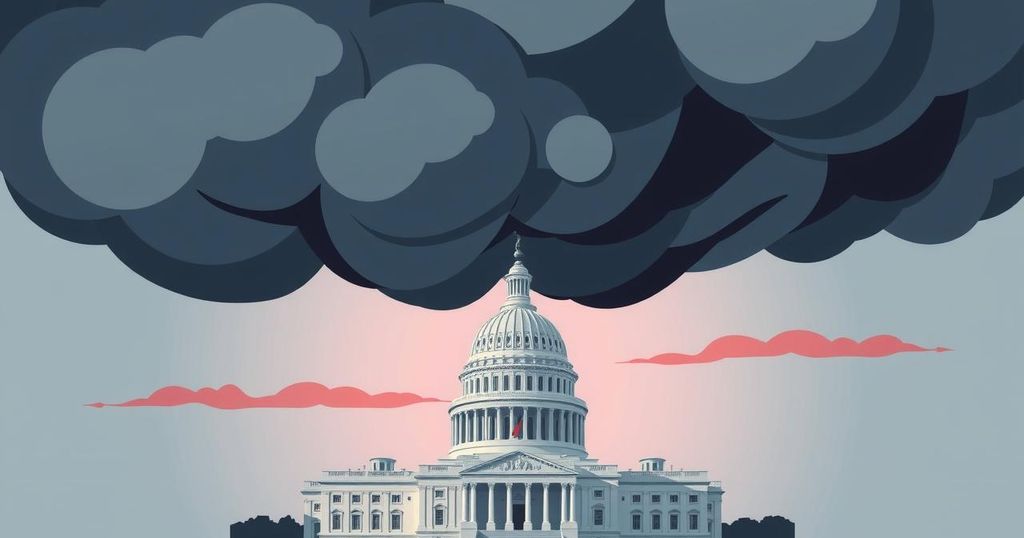World news
AFRICA, ALASKA, CONGRESS, EUROPE, FISCAL POLICY, GREECE, HOUSE, HOUSE OF REPRESENTATIVES, INFLATION, KENTUCKY, LEGISLATION, LIBYA, LISA MURKOWSKI, MAINE, MIKE JOHNSON, NORTH AMERICA, NORTH CAROLINA, POLITICS, RAND PAUL, SENATE, THOM TILLIS, UNITED STATES, US, WASHINGTON
Oliver Grayson
0 Comments
Senate Narrowly Passes Controversial Tax-and-Spending Bill
- US Senate approves Trump’s tax-and-spending package by 51-50 vote.
- House of Representatives now holds final say on the legislation.
- The bill could add $3.3 trillion to the national debt over the next decade.
- Contentious provisions aim to cut Medicaid by $930 billion and food aid.
- Critics fear millions could become uninsured under the Senate’s plan.
Senate Passes Controversial Tax-and-Spending Bill
In a closely watched development, the US Senate has narrowly approved a sweeping tax-and-spending package pushed by President Donald Trump, with the vote tally coming in at 51-50. Vice President JD Vance, who broke the tie, played a crucial role in this decision, enabling the Senate to advance legislation that would make significant cuts to social welfare programs while simultaneously bolstering military and immigration enforcement spending. This new package, if signed into law, would potentially add an eye-watering $3.3 trillion to the national debt, prompting heated discussions among Republicans who are often sharply divided on fiscal matters.
House Weighs Options on Senate’s Tax Package
The proposed legislation will head to the House of Representatives for final consideration, where some Republican lawmakers have already expressed reservations about specific elements of the Senate’s version. The measure extends the 2017 tax cuts initially championed by Trump and includes fresh tax breaks aimed at income sources like tips and overtime pay. Additionally, it earmarks about $930 billion in cuts from programs such as Medicaid and food assistance for lower-income citizens and moves to eliminate several of the green-energy incentives previously established during President Joe Biden’s tenure.
Potential Impact of the Legislation
Concerns loom large over the potential repercussions of this bill, especially regarding health care access for millions of Americans. The nonpartisan Congressional Budget Office has noted that nearly 12 million people could find themselves without health insurance under the proposed cuts. Furthermore, the legislation is criticized for disproportionately benefiting the wealthiest Americans, with the top 1 percent projected to receive the largest tax breaks, thus exacerbating income inequality in the nation. House Democrats are expected to resist the bill unanimously, labeling it as the “largest assault on American health care in history.”
Trump Aims for Quick Passage in House
As the House prepares to deliberate, President Trump is expected to take an active role in rallying support for the package among House Republicans, as he aims for a July 4 signing ceremony. However, numerous factions within the party complicate the situation. The Freedom Caucus and moderate Republicans are grappling with differing priorities, highlighting the intricate balancing act that must occur to steer the bill through the House successfully. The vote is anticipated to be tight, reflecting a larger struggle within the party to reconcile various interests under a unified approach to tax reform and spending cuts.
Conflict Over Legislative Priorities
As Republican leaders tout the potential economic benefits outlined in the legislation, detractors, including Senate Democratic Leader Chuck Schumer, have issued strong rebukes, claiming that the bill will have devastating effects on working-class families. The divide casts a shadow over any optimistic outlook about the purported benefits, with critics asserting that millions risk losing essential services. Ultimately, this legislative battle is emblematic of broader ideological clashes within the American political landscape, especially regarding fiscal responsibility and social welfare.
In summary, the Senate’s passage of President Trump’s tax-and-spending bill has set off significant debate as it moves to the House for final approval. While it proposes extending tax cuts and increasing military spending, it simultaneously imposes cuts to essential health care and food assistance programs. As both sides prepare for a contentious discussion, the uncertainty surrounding the bill’s future reflects deep divisions within the Republican Party and a wide array of public concerns regarding its implications for millions of Americans.




Post Comment